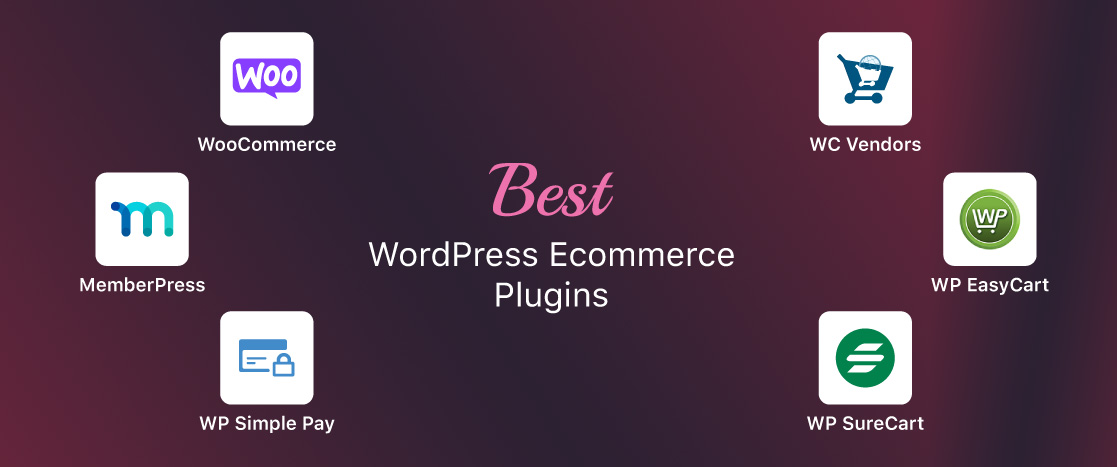
Mastering Ecommerce Affiliate Marketing Tools: Strategies for Maximizing Profits
- Why Affiliate Marketing is Profitable for Ecommerce
- Understanding the Basics of Ecommerce Affiliate Marketing
- Setting Up Your Ecommerce Affiliate Marketing Program
- Recruiting and Managing Affiliates
- Best Ecommerce Affiliate Marketing Tools
- Affiliate Tracking Software
- Affiliate Networks
- SEO Tools for Affiliate Websites
- Email Marketing Platforms
- Data Analytics Tools
- Automation Tools
- HubSpot
- Creating High-Converting Affiliate Content
- Advanced Strategies for Maximizing Profits
- Conclusion
Ecommerce affiliate marketing is a performance-based strategy where businesses reward affiliates (partners) for driving traffic or sales to their online stores. Affiliates use unique links to promote products or services, earning a commission for every conversion they generate. This model leverages the reach of affiliate marketers, allowing ecommerce businesses to tap into new audiences without upfront costs.
- Why Affiliate Marketing is Profitable for Ecommerce
- Understanding the Basics of Ecommerce Affiliate Marketing
- Setting Up Your Ecommerce Affiliate Marketing Program
- Recruiting and Managing Affiliates
- Best Ecommerce Affiliate Marketing Tools
- Affiliate Tracking Software
- Affiliate Networks
- SEO Tools for Affiliate Websites
- Email Marketing Platforms
- Data Analytics Tools
- Automation Tools
- HubSpot
- Creating High-Converting Affiliate Content
- Advanced Strategies for Maximizing Profits
- Conclusion
Why Affiliate Marketing is Profitable for Ecommerce
Affiliate marketing is particularly lucrative for ecommerce businesses because it aligns the goals of the business and its affiliates. Companies only pay for results—whether that’s a click, lead, or sale. This minimizes risk and maximizes ROI. Additionally, affiliate marketing expands a brand’s visibility by reaching niche markets that might be difficult to access otherwise.
Objectives of This Guide
This guide aims to equip you with the knowledge and tools needed to master ecommerce affiliate marketing. By the end of this blog, you’ll understand how to set up and optimize your affiliate program, select the best tools, and implement advanced strategies to boost profits.
Understanding the Basics of Ecommerce Affiliate Marketing
How Ecommerce Affiliate Marketing Works
The foundation of ecommerce affiliate marketing lies in the collaboration between three key players: merchants (ecommerce businesses), affiliates, and consumers. Merchants provide products or services, affiliates promote them, and consumers make purchases based on affiliate recommendations.
The commission structure can vary, with common models including:
- CPC (Cost Per Click): Payment for every click generated by an affiliate link.
- CPA (Cost Per Action): Payment for a specific action, like signing up for a newsletter.
- CPS (Cost Per Sale): Payment based on a percentage of the sale value.
Key Terms and Concepts in Affiliate Marketing
Understanding affiliate marketing requires familiarity with key terms:
- Affiliate Links: Unique URLs used by affiliates to track traffic and conversions.
- Cookies: Data stored in a user’s browser to track their activity after clicking an affiliate link.
- Conversion Rate: The percentage of visitors who complete a desired action (e.g., making a purchase) after clicking an affiliate link.
Examples of Successful Ecommerce Affiliate Marketing Programs
Several brands have successfully harnessed affiliate marketing, such as Amazon with its Amazon Associates program, and Shopify, which offers competitive commissions to affiliates promoting its ecommerce platform. These programs demonstrate the potential of affiliate marketing to drive significant revenue and brand growth.
Setting Up Your Ecommerce Affiliate Marketing Program
Identifying Your Niche and Target Audience
The first step in launching a successful affiliate program is identifying the right niche. A well-defined niche helps you attract affiliates who are experts in that area and can effectively reach your target audience. Understanding your audience’s preferences, behavior, and pain points is crucial for creating an appealing affiliate offer.
Choosing the Right Affiliate Platform
Selecting the right affiliate platform is vital for managing your program efficiently. Some popular platforms include:
- ShareASale: Offers a user-friendly interface and a large network of affiliates.
- CJ Affiliate: Known for its robust tracking capabilities and diverse affiliate network.
- Rakuten Advertising: Provides advanced reporting tools and global reach.
Each platform has its pros and cons, and the choice depends on your specific needs, such as budget, target market, and the complexity of your affiliate program.
Developing Your Affiliate Marketing Strategy
A well-structured strategy is the backbone of a successful affiliate program. Begin by setting clear goals, such as increasing sales by a certain percentage or expanding into new markets.
Define key performance indicators (KPIs) to track progress, such as conversion rates, average order value, and affiliate-generated revenue.
Budgeting is another critical aspect. Allocate resources for affiliate commissions, platform fees, and any bonuses or incentives. Additionally, consider the type of creatives and promotional materials you’ll provide to affiliates.
Recruiting and Managing Affiliates
Finding the Right Affiliates for Your Ecommerce Business
The success of your program hinges on recruiting the right affiliates. Look for partners who align with your brand values, have a strong online presence, and can effectively communicate with your target audience. You can find potential affiliates by:
- Searching through affiliate networks.
- Exploring social media influencers.
- Engaging with industry bloggers.
Building Strong Relationships with Affiliates
Building and maintaining strong relationships with your affiliates is crucial. Regular communication, transparency, and providing the necessary tools and resources will keep your affiliates motivated. Personalized support, such as one-on-one coaching or exclusive webinars, can significantly enhance affiliate performance.
Motivating and Retaining Top-Performing Affiliates
Retaining top affiliates requires a strategic approach. Consider offering:
- Higher commission rates: Reward your top performers with increased commissions.
- Exclusive offers: Provide them with unique discount codes or early access to new products.
- Bonuses: Offer performance-based bonuses to incentivize continued success.
Tracking Performance and Optimizing Affiliate Campaigns
Tracking tools and analytics are indispensable for measuring affiliate performance. Regularly review metrics such as click-through rates, conversion rates, and revenue generated by each affiliate. Use this data to optimize your campaigns, focusing on high-performing affiliates and tweaking strategies for those underperforming.
Best Ecommerce Affiliate Marketing Tools
In the world of ecommerce affiliate marketing, having the right tools at your disposal can make the difference between a thriving affiliate program and a lackluster one. These tools streamline the management process, enhance performance tracking, optimize content, and ultimately help you maximize profits. Here’s a comprehensive breakdown of essential ecommerce affiliate marketing tools and how they contribute to the success of your affiliate program.
Affiliate Tracking Software
Tracking software is the backbone of any affiliate marketing program. It allows you to monitor clicks, sales, conversions, and commissions in real-time, ensuring that all transactions are accurately recorded and attributed to the correct affiliates.
Post Affiliate Pro
Post Affiliate Pro is a leading affiliate tracking software known for its robust features and user-friendly interface.
Key Features:
- Real-Time Tracking: Monitor clicks, sales, and conversions as they happen, ensuring accurate attribution.
- Commission Structures: Supports various commission types, including CPC, CPA, and CPS, allowing flexibility in how you reward affiliates.
- Customizable Dashboards: Tailor your dashboard to view the metrics that matter most to your business.
- Fraud Protection: Built-in fraud detection tools help you avoid paying commissions on fraudulent activities.
Tapfiliate
Tapfiliate is another powerful tool for tracking and managing affiliate campaigns, particularly known for its ease of integration with popular ecommerce platforms.
Key Features:
- Seamless Integration: Easily integrates with platforms like Shopify, WooCommerce, and WordPress.
- Custom Branding: Offers customization options to align with your brand’s look and feel.
- Automated Payouts: Automate the payout process, ensuring timely payments to your affiliates.
- Multi-Language Support: Ideal for global ecommerce businesses, supporting multiple languages and currencies.
Affiliate Networks
Affiliate networks serve as a marketplace where businesses can find and recruit affiliates, and vice versa. These networks provide a platform for managing affiliate relationships, tracking performance, and handling payments.
Impact
Impact is a comprehensive affiliate network that offers advanced tracking, reporting, and management tools.
Key features include:
- Global Reach: Connect with affiliates from around the world, expanding your market reach.
- Flexible Commission Structures: Customize commission rates and structures to suit your business needs.
- Advanced Reporting: Gain insights into affiliate performance with detailed reports on clicks, conversions, and revenue.
- Partner Automation: Automate workflows to manage partnerships more efficiently, saving time and resources.
Awin:
Awin is a popular affiliate network known for its extensive network of affiliates and merchants across various industries.
Here are the key features:
- Vast Network: Access a large pool of potential affiliates across multiple niches.
- Comprehensive Support: Benefit from dedicated account management and support to optimize your affiliate program.
- Cross-Device Tracking: Track user behavior across multiple devices, ensuring accurate attribution for conversions.
- Customizable Commission Models: Set up different commission models based on product categories, regions, or performance tiers.
SEO Tools for Affiliate Websites
Search Engine Optimization (SEO) plays a critical role in affiliate marketing, particularly in driving organic traffic to affiliate content. SEO tools help you identify profitable keywords, analyze competitors, and optimize your content for search engines.
SEMrush
SEMrush is an all-in-one SEO tool that provides comprehensive data for keyword research, competitor analysis, and content optimization.
Some of its popular features are:
- Keyword Research: Discover high-volume, low-competition keywords that can drive targeted traffic to your affiliate content.
- Competitor Analysis: Analyze competitors’ affiliate strategies, uncovering their top-performing keywords and backlinks.
- Content Marketing Toolkit: Optimize your content with SEO recommendations, topic ideas, and content templates.
- Site Audit: Perform a site audit to identify and fix technical SEO issues that may affect your rankings.
Ahrefs
Ahrefs is another leading SEO tool, particularly known for its robust backlink analysis and keyword research capabilities.
Some of its notable features are:
- Backlink Analysis: Identify backlink opportunities to improve your site’s authority and rankings.
- Content Explorer: Discover top-performing content in your niche and find opportunities to create better content.
- Rank Tracking: Monitor your search rankings for targeted keywords and track progress over time.
- Site Explorer: Analyze the SEO performance of your website and competitors, gaining insights into what drives their traffic.
Email Marketing Platforms
Email marketing is a powerful channel for promoting affiliate links and engaging with your audience. The right email marketing platform can help you segment your audience, automate campaigns, and measure the effectiveness of your affiliate promotions.
Mailchimp
Mailchimp is a widely-used email marketing platform, known for its user-friendly interface and extensive features.
Here are some key features of Mailchimp:
- Automation: Automate email sequences, such as welcome series, product recommendations, and follow-up emails, to nurture leads and encourage conversions.
- Segmentation: Segment your email list based on user behavior, purchase history, and demographics for targeted marketing.
- A/B Testing: Test different subject lines, content, and calls-to-action to optimize email performance.
- Analytics: Track open rates, click-through rates, and conversions to measure the effectiveness of your campaigns.
ConvertKit
ConvertKit is an email marketing platform designed specifically for creators, bloggers, and content marketers, making it ideal for affiliate marketing.
Key Features:
- Visual Automation Builder: Create complex email workflows with a drag-and-drop builder, allowing you to tailor your email campaigns to specific user journeys.
- Tagging and Segmentation: Use tags to segment your audience based on their actions and preferences, delivering personalized content.
- Landing Pages: Create high-converting landing pages to capture leads and promote affiliate offers.
- Subscriber Analytics: Gain insights into subscriber behavior and optimize your campaigns based on data-driven decisions.
Data Analytics Tools
Data analytics tools are essential for understanding the performance of your affiliate marketing efforts. They provide insights into user behavior, campaign effectiveness, and areas for improvement, helping you make informed decisions.
Google Analytics
Google Analytics is a free tool that provides detailed insights into website traffic, user behavior, and conversion tracking.
Key Features:
- Traffic Analysis: Understand where your traffic is coming from, which pages are most visited, and how users navigate your site.
- Conversion Tracking: Track conversions from affiliate links, measuring the effectiveness of your campaigns.
- Audience Insights: Gain insights into your audience’s demographics, interests, and behavior, allowing for more targeted marketing.
- Custom Reports: Create custom reports to focus on specific metrics that matter to your affiliate program.
Hotjar
Hotjar is a behavioral analytics tool that provides insights into how users interact with your website through heatmaps, session recordings, and feedback polls.
Key Features:
- Heatmaps: Visualize where users click, scroll, and move on your site, helping you optimize user experience and content placement.
- Session Recordings: Watch recordings of user sessions to identify usability issues and opportunities for improvement.
- Feedback Polls: Collect direct feedback from users to understand their needs and preferences.
- Conversion Funnels: Analyze the steps users take before converting, identifying any drop-off points that may need attention.
Mixpanel
Mixpanel is an advanced analytics platform that focuses on user interactions and customer journeys, providing deep insights into user behavior.
Key Features:
- Event Tracking: Track specific user actions, such as clicks, downloads, and sign-ups, to understand how users interact with your site.
- User Segmentation: Segment users based on their behavior and demographics to deliver personalized marketing messages.
- Cohort Analysis: Analyze how different groups of users behave over time, identifying trends and opportunities for growth.
- A/B Testing: Test different versions of your content, landing pages, or user flows to optimize performance.
Automation Tools
Automation tools help streamline various aspects of your affiliate marketing program, from onboarding affiliates to managing communications and payments. Automation saves time, reduces errors, and ensures consistency across your program.
Zapier
Zapier is a popular automation tool that connects different apps and services, allowing you to automate repetitive tasks.
Key Features:
- Task Automation: Automate tasks such as sending welcome emails to new affiliates, updating spreadsheets with affiliate data, and triggering alerts for important events.
- App Integrations: Connect with over 2,000 apps, including your CRM, email marketing platform, and affiliate tracking software.
- Custom Workflows: Create custom workflows (Zaps) to automate complex processes, ensuring efficiency and consistency.
- Multi-Step Zaps: Automate multi-step processes that involve several apps and actions, streamlining your affiliate management tasks.
HubSpot
HubSpot is a CRM and marketing automation platform that helps manage affiliate relationships, track communications, and nurture leads.
Key Features:
- CRM Integration: Keep track of all interactions with affiliates, from emails to payments, in one centralized location.
- Email Automation: Automate email sequences to onboard new affiliates, send promotional materials, and nurture relationships.
- Analytics and Reporting: Monitor the performance of your affiliate program with detailed reports on conversions, revenue, and affiliate engagement.
- Lead Scoring: Use lead scoring to identify high-performing affiliates and prioritize your efforts to maximize returns.
7. Affiliate Content Optimization Tools
Creating and optimizing content is crucial in affiliate marketing. These tools help you craft compelling content that resonates with your audience and drives conversions.
Canva
Canva is a design tool that enables you to create visually appealing graphics, banners, and promotional materials for your affiliate campaigns.
Key Features:
- Templates: Access a wide range of customizable templates for social media posts, banners, and email headers.
- Drag-and-Drop Interface: Easily create professional-looking designs with a user-friendly drag-and-drop interface.
- Collaboration: Collaborate with team members on design projects, ensuring consistency and alignment with your brand.
- Brand Kit: Store your brand’s logos, colors, and fonts in one place, ensuring all designs align with your brand identity.
Grammarly
Grammarly is a writing assistant that helps you create clear, error-free content that engages readers and drives conversions.
Key Features:
- Grammar and Spelling Checks: Automatically detect and correct grammatical errors, spelling mistakes, and punctuation issues.
- Tone Detection: Ensure your content’s tone aligns with your brand voice, whether it’s formal, casual, or persuasive.
- Plagiarism Checker: Verify that your content is original and free from plagiarism, protecting your brand’s reputation.
- Writing Suggestions: Receive suggestions to improve readability, clarity, and engagement, making your content more effective.
BuzzSumo
BuzzSumo is a content research tool that helps you discover trending topics, popular content, and influencer insights in your niche.
Key Features:
- Content Discovery: Find the most shared content in your industry, giving you ideas for your own affiliate content.
- Influencer Identification: Identify key influencers and potential affiliates who can help amplify your content.
- Content Alerts: Set up alerts for new content in your niche, allowing you to stay on top of trends and capitalize on emerging opportunities.
- Performance Analysis: Analyze the performance of your content across different platforms, optimizing for better results.
Creating High-Converting Affiliate Content
Types of Content That Drive Affiliate Sales
Content is crucial in affiliate marketing, and certain types excel at driving sales. High-converting content includes detailed product reviews that build trust and encourage purchases, comparison guides that offer side-by-side evaluations to help consumers make informed decisions, and how-to guides that demonstrate how your products can solve specific problems.
These content forms not only attract traffic but also significantly boost your SEO efforts by providing valuable information that resonates with your audience and meets their search intent. By focusing on these content types, you can effectively drive affiliate sales and enhance your online presence.
SEO Strategies for Affiliate Content
SEO is essential for driving organic traffic to your affiliate content. Start by conducting keyword research to identify high-volume, low-competition keywords relevant to your niche. Optimize your titles, meta descriptions, and headers with these targeted keywords to enhance on-page SEO.
Additionally, focus on creating high-quality content that is informative, engaging, and valuable to readers. Incorporating long-tail keywords and niche-specific terms can further boost your content’s search engine rankings, helping attract more targeted traffic and increasing the chances of conversions. Effective SEO strategies are key to maximizing the visibility and impact of your affiliate content.
Email Marketing Strategies for Affiliate Success
Email marketing remains one of the most effective channels for affiliate marketing. Build a segmented email list to target specific audience groups with personalized offers. Use compelling subject lines, persuasive copy, and strategically placed affiliate links to drive conversions. Regular newsletters, promotional offers, and product recommendations can keep your audience engaged and drive consistent sales.
Leveraging Data Analytics Tools for Enhanced Performance
Data-driven decisions are crucial for optimizing your affiliate marketing strategy. Tools like Google Analytics and Hotjar help you understand user behavior, track conversions, and identify areas for improvement. Advanced tools like Mixpanel provide deeper insights into customer journeys, helping you refine your marketing efforts for better results.
Using Automation Tools to Scale Your Affiliate Program
Automation can streamline many aspects of your affiliate program, from onboarding new affiliates to managing payouts. Tools like Zapier and Automate.io allow you to automate repetitive tasks, saving time and ensuring consistency. Additionally, using CRM tools like HubSpot can help manage affiliate relationships and track communications efficiently.
Advanced Strategies for Maximizing Profits
Using Data and Analytics to Enhance Performance
Leveraging data and analytics is crucial for improving your affiliate marketing performance. By regularly analyzing performance metrics, you can identify trends, uncover opportunities, and make informed decisions that drive your strategy forward.
Understanding which campaigns, affiliates, and content types perform best allows you to optimize your efforts for maximum impact. Tools like Google Data Studio play an essential role in this process, as they enable you to visualize complex data in a clear, accessible format. This visualization helps you quickly interpret key insights and take actionable steps to enhance your campaigns.
Whether it’s adjusting your content strategy, reallocating resources, or targeting specific audience segments, data-driven decisions ensure that your affiliate marketing efforts are both efficient and effective. Consistently applying this approach allows you to stay ahead of the competition, fine-tune your tactics, and ultimately achieve better results in your affiliate marketing initiatives.
Scaling Your Affiliate Program
Scaling your affiliate program requires a strategic approach that involves expanding your network, entering new markets, and amplifying your promotional efforts. To broaden your reach, consider diversifying your affiliate base by recruiting partners from various niches.
This not only helps you tap into different audience segments but also enhances your program’s adaptability and resilience. Expanding internationally is another effective strategy, as exploring global markets allows you to access new customer segments and increase your brand’s visibility on a larger scale.
Additionally, investing in paid advertising can significantly boost your efforts by attracting high-quality affiliates and driving more traffic to your content. Paid ads can also help you target specific demographics and regions, ensuring your promotional efforts are both effective and efficient. By implementing these strategies, you can successfully scale your affiliate program, maximize its potential, and achieve greater success in your marketing endeavors.
Avoiding Common Pitfalls in Affiliate Marketing
Avoiding common pitfalls is crucial for the success of your affiliate marketing program. One major mistake is choosing affiliates who do not align with your brand, which can lead to ineffective promotions and subpar performance. It is also essential to adhere to legal guidelines and compliance standards; failing to do so can result in penalties and harm your reputation. Neglecting analytics is another critical error, as without tracking and analyzing performance metrics, you miss out on valuable opportunities for optimization and improvement.
By addressing these issues proactively—ensuring that your affiliates are well-suited to your brand, maintaining strict compliance with regulations, and regularly reviewing performance data—you can significantly enhance the effectiveness of your affiliate marketing efforts. This strategic approach will help you avoid common errors and set the foundation for a successful, sustainable affiliate program.
Conclusion
Ecommerce affiliate marketing is a powerful strategy for increasing sales and expanding your brand’s reach. By understanding the basics, choosing the right tools, and implementing advanced strategies, you can maximize your affiliate marketing profits.
Affiliate marketing offers immense potential for ecommerce businesses, but success requires careful planning, execution, and continuous optimization. Invest in the right tools, build strong relationships with your affiliates, and stay informed about industry trends to keep your program competitive.
Now that you have a comprehensive understanding of ecommerce affiliate marketing, it’s time to put these strategies into action. Start by setting up your affiliate program, recruit the right affiliates, and watch as your business grows through this powerful marketing channel.





